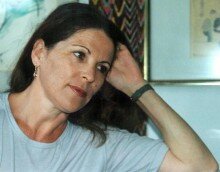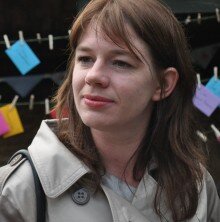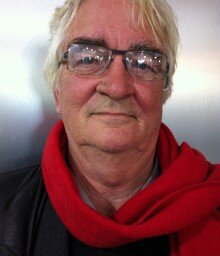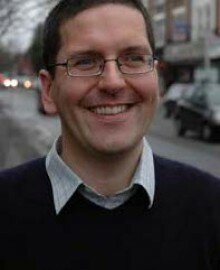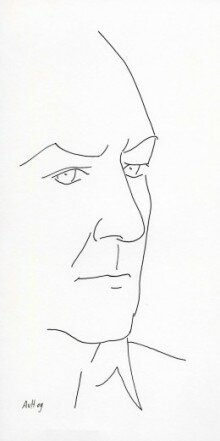
Hubert van Herreweghen made his début during the Second World War as a poet expressing a modern sensibility. In classically moulded verse he described the dismay and helplessness of his generation. Over sixty years later, Flanders’ oldest poet is now more of a thoroughgoing vitalist. These days he responds to mortality with light-hearted poems full of joie de vivre and linguistic invention.
The German philosopher Theodor W. Adorno believed that the Second World War entailed a radical break in thought and action. One could not simply resume one’s old life in 1945 as if the catastrophe had been a mere interlude. This war, he thought, marked a caesura, and in his view that had consequences for art. Aestheticism became problematic and was condemned as escapist. From then on, art should express the pain and ugliness resulting from the global conflagration.
Within Flemish literature, Hubert van Herreweghen, who, until his retirement, worked for Flemish television, represents a similar view. Under the influence of existentialism, he wrote the following in his essay ‘Testimony 1950: Poetry’: “Before 1940 poets could still consider themselves demi-gods, with superior powers and a superior sensuality, who toyed with life; in 1950 that idea provokes nothing but a faint smile. We know that life is toying with us!”
That modern vision, instigated by the war, is bound to have implication for the practice of poetry. Dismay and impotence must find a place within it; the poem must put chaotic reality into words. As a consequence, mainly ‘negative’ themes appear in the work of the young poet: the problems of mortality; fear of death; guilt; disease; existential solitude. However, he presented that disruptive content in classical form: though the poet was keen to break with the previous generation in terms of content, technically he sought the continuity of tradition. Hence he was grouped, together with the poets Jos de Haes, Anton van Wilderode and Christine D’haen, with the so-called ‘resistance generation’, religiously inspired, conservative poets whose work embraced essentially romantic themes and traditional forms of expression.
Not long afterwards, the experimental Poets of the Fifties, including writers such as Lucebert, Hugo Claus and Gerrit Kouwenaar, attached formal consequences to this confused world picture. The advent of avant-garde poetry in the Low Countries put Van Herreweghen’s work in the shade, although he published five collections between 1960 and 1970.
The collection Aardewerk (Earthenware, 1984) was a turning point in Van Herreweghen’s oeuvre. The poet reinvented himself in terms of content, typography and metre. Van Herreweghen abandoned strict forms, and his elevated tone was exchanged for a conversational style. His work now tended towards the poésie pure of Guido Gezelle and Paul van Ostaijen. But there was also a thematic evolution. The sense of mortality was still prominent, but opposed to it there was now – in old age – a feeling of vitality. An increasing number of his poems celebrated in a light-hearted way the beauty and power of nature. The paralysing thought of death so prevalent in the earlier work gave way to a life-affirming attitude. Moreover, that joie de vivre was reflected in a greater degree of linguistic play, making use of dialect and archaic words (as in the title Korf en trog/Hive and Trough). Concepts were drawn from flora and fauna (for example, Kornoeljebloed/Cornelian Blood) and the play of sounds sometimes took precedence over meaning.
The collection that Van Herreweghen published in 2009 at the age of eighty-nine, Webben & wargaren (Webs & Tangled Yarn), is a powerful encapsulation of everything that now characterises his poetry. The title is a metaphor of the way the poet experiences life: one is caught up within it and therefore cannot grasp it. If that originally produced anxiety in this poet, that anxiety has now morphed into a joyous bewilderment, articulated through resonant poems.
Selected bibliography
Poetry
Het jaar der gedachtenis (The Year of Memory), Steenlandt, Brussel, 1943
Gedichten II. Brieven uit Portugal (Poems II. Letters from Portugal), Meddens, Brussels, 1958
Verzamelde gedichten (Collected Poems), Orion, Bruges, 1977
Aardewerk. Gedichten VI (Earthenware. Poems VI), Lannoo, Tielt, 1984
Webben & wargaren (Webs & Tangled Yarn), P, Leuven, 2009
Literary prizes
Prize of the Region of Brabant (1945)
National Prize for Poetry (1961)
Prize of the journal De Standaard (1985)
Dirk Martens Prize (2005)
Literary Prize of the Flemish Region (2006)



